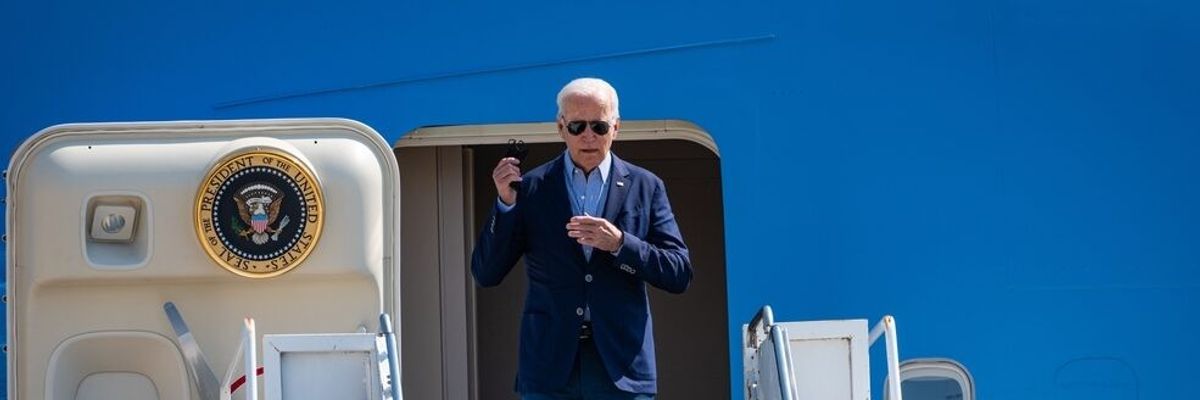President Joe Biden is set to make his first visit to the Middle East next week, with stops in Israel and Saudi Arabia. The trip was never going to be simple from a PR perspective. After all, Biden campaigned on making Saudi Arabia a “pariah,” and his stopover in Israel comes just after U.S. officials said Tel Aviv was “likely responsible” for the death of Palestinian-American journalist Shireen Abu Akleh.
If a recent poll is to be believed, the trip risks becoming a public relations disaster. Biden’s official justification is that the trip is important for Israeli national security, and he is likely to highlight Saudi Arabia’s importance as an oil exporter if pushed on his much-softened stance toward the Gulf monarchy. As it turns out, neither of these framings is a winner for the president.
The University of Maryland survey broke a sample of 2208 Americans into three groups, each of which was presented with a different framing for the visit. A neutral phrasing showed ambivalence about the trip, with 24 percent approval and 25 percent disapproval.
But when pollsters told the second group that Biden’s visit was about protecting Israeli national security — a historically airtight justification for U.S. policy in the region — disapproval actually went up, jumping from 25 to 31 percent, while approval stayed flat. And a lot of that movement came from Biden’s own party, highlighting Israel’s damaged image among Democrats.
A focus on Israeli security “doesn’t seem to help [Biden] sell his trip,” Shibley Telhami, who conducted the poll, wrote in the Washington Post. “In fact, it may be hurting him among his Democratic constituency.”
The third group got a harsher framing, emphasizing Biden’s “pariah” comments while also noting Riyadh’s importance to “the global energy market.” Unsurprisingly, this was the least popular justification for the trip, earning 33 percent disapproval and 23 percent approval.
Of course, the poll does present one silver lining for the Biden administration: A plurality of respondents from each group answered “I don’t know” or “I neither approve nor disapprove,” meaning that many Americans remain on the fence about the trip.
But ambivalence is a double-edged sword. Neither the second nor the third framing was as harsh as it could have been. No specific human rights concerns were mentioned, and pollsters left out any reference to Abu Akleh’s killing and the Saudi state-sanctioned murder of Jamal Khashoggi.
With just a few days left before the trip, only time will tell if widespread disinterest will turn into ire.
















